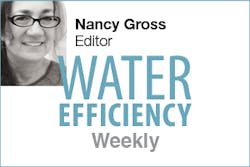Before I mention an article I came across that speaks of a fitness and nutrition brand—that thinks water isn’t adequately quenching people’s thirst—I want to comment on bottled water. I am not a fan at all. I wish I could say I never drink it, but I probably do drink, on average, about one bottle a week as given to me by a friend, or if I am handed one after a massage. I drank one when an Uber driver was taking me to the airport recently and I was having a coughing fit. When he offered the water I thought of the other passenger in the car and how soothing the cough would make everyone, including me, happy. I mean, there are moments when I would rather be gracious or get a need met than be dogmatically idealistic, and I can lay aside worrying about and discussing plastic trash for another time. But I can’t put it out of my mind or give up doing my part. There’s a lot of plastic trash out there, and if you want to get a good view of what is happening to our oceans please visit the site of Five Gyres.
Here is a good post about bottled water that not only touches on the trash problem, but also discusses the cost of bottled water, the adequacy of home filters for people concerned about tap water quality, and the possibility that plastic is not a healthful container for water: Seriously, It’s Time to Stop Drinking Bottled Water. I have heard that the marketing and omnipresence of bottled water has impacted the functioning of municipal water companies. People will pay considerable sums, comparatively, for bottled water over tap, but not recognize the need to adequately fund their city water providers. Infrastructure is suffering as a result.
So all that being said, I am intrigued but also repelled by this new water called Fat Water. The plastic bottle part is as disappointing as always. The fat part is mildly intriguing because the ways our bodies work and nutrition interest me. While fat may be fuel for the journey, I suspect this development is mostly novelty—not science that will go the distance. What do you think? Below are excerpts from an article from The Huffington Post: Bulletproof Coffee Fans Can Now Hydrate With Fatwater—something different to talk about, my nod to the quirks and continual inventiveness of pop foodie and fitness culture. Other than the plastic bottles, I have no beef with this water, and I do think that fats deserve their recognition. Low, low, low fat eating never seemed sensible to me, if sensible makes any sense where humans are concerned anyway.
Remember Bulletproof coffee, the ubiquitous food trend that had everybody putting butter and oil in their coffee (or talking about it) in the hope it would give their brains seemingly superhuman energy and concentration?
While these health claims have been contested by some health professionals, it didn’t stop Dave Asprey, the guy who turned his experience with yak butter tea in Tibet into an expanding fitness and nutrition brand, from announcing his next trick: manufacturing a bottled water purporting to have similar cognitive benefits.
It’s called Fatwater, and it’s essentially water mixed with Asprey’s proprietary oil extracted from coconuts, called Bulletproof XTC Oil, and vitamin E to help the water and oil mix together.
So what does it taste like?
Asprey told The Huffington Post that Fatwater feels different than drinking Bulletproof coffee, or even normal water. Fatwater “is not meant to be creamy,” he said, like Bulletproof coffee. Instead, “it’s pearlescent… it feels wetter on the tongue.”
According to Asprey, a self-described biohacker, our bodies don’t process water as efficiently as they could.
“It turns out, if you gulp a giant bottle of water, most of it passes through you and doesn’t get absorbed,” he said. “People have been talking for many years about how our bodies are dehydrated and how we need even more water in the body and not just more water in the mouth. This is our contribution to help people solve that problem.”
The “fat” in the concoction’s name refers to medium-chain-triglycerides in the oil that Asprey says our bodies absorb easily. Each serving of Fatwater contains 2 grams of fat and 20 calories.
